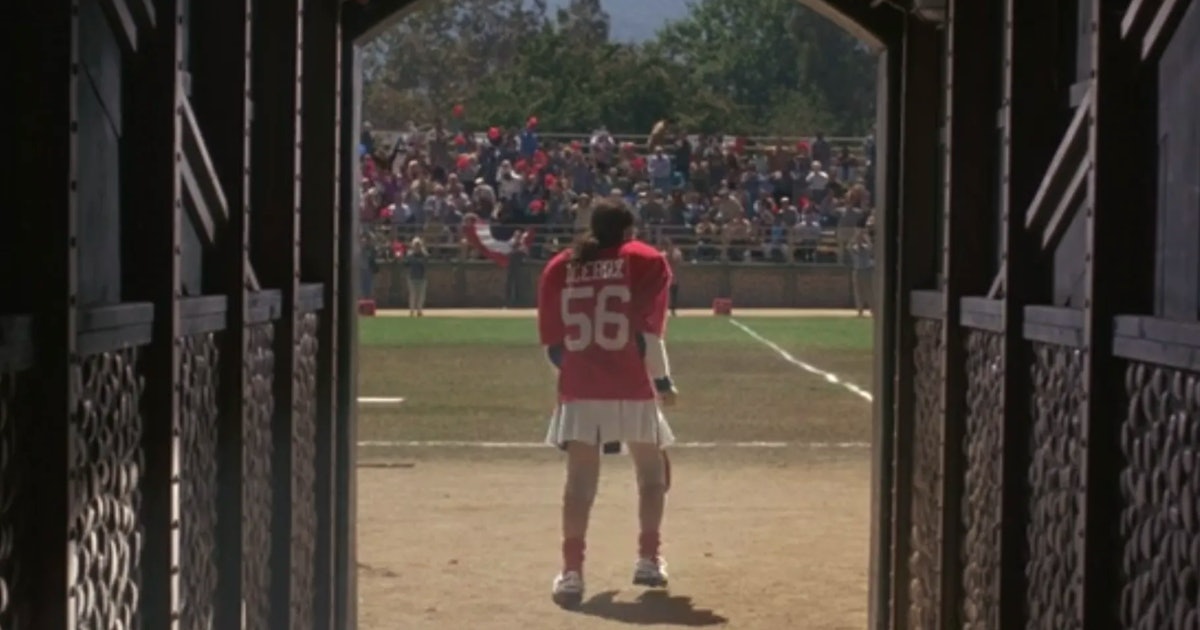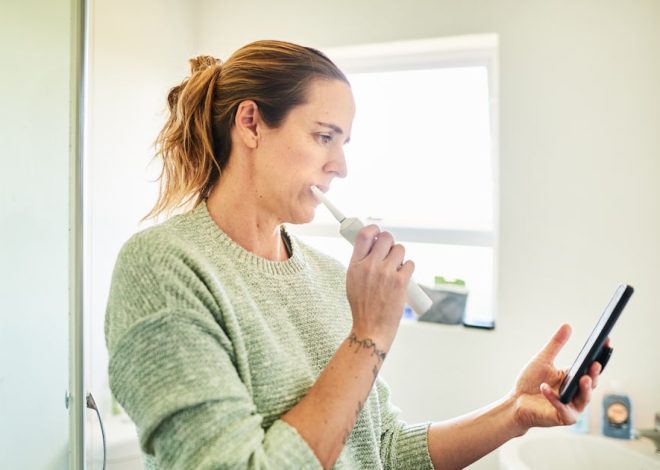
30 Years Later, ‘Little Giants’ Is Still Teaching Boys That Girls Are Sports Heroes, Too
The last thing I expected to see when my husband and kids cued up Little Giants, a 1994 classic underdog story, was a linebacker named Becky. Well, “Becky ‘The Icebox’ O’Shea,” to be exact. She was a force to be reckoned with on and off the Pee Wee football field, and she was (*gasp*) a girl.
As a mom to four sons, then a daughter, it has been my personal mission for nearly a decade to push back every time someone tells them not to throw or scream like a girl, every time they skip over a WNBA game in favor of a men’s game, and every time they assume their little sister will become a cheerleader by default.
But, like many classic shows do, it seemed to teach them more in a two-hour movie night than I’d accomplished in the 9,8,6, and 4 years of their lives. I’ve often rewatched that movie (as they’re obsessed with it), deconstructing the plot and Becky’s character to figure out the reasons.
Here’s why the movie was a feminist work of art before its time — and stands the test of time when many gender-based stories don’t.
She has crushes, and she crushes bullies.
Wait what? Girls can have both swooney girly moments where they want to be seen as attractive, beautiful, and wanted and also kick some serious ass a few minutes later? Becky has a huge crush on Junior, who shares that he’s more into the “cheerleader” type… and that it would be gross to try to practice kissing with her. My sons saw her heartbreak and rejection. They also saw her cover a bully with mud from her go-cart after driving him into a lake. Writing a one-dimensional badass character would have been expected. But a sensitive, multifaceted young woman shows that breaking into a man’s world doesn’t preclude you from femininity.
She tries to be someone she isn’t… until she can’t.
My sons’ faces as they watched Becky try to become a cheerleader for a boy said it all — they were as uncomfortable watching as she was wearing a cheer skirt. A sense of relief fell over my brood as she charged back onto the field, skirt and all, to resume her rightful role as linebacker, defending her team. Even the opposing team’s coach, her own uncle Kevin O’Shea, declared, “That’s my niece, Becky. And she’s pissed.” When her crush finally comes around (even without the cheer skirt), we see the only way forward is being your true self.
She inspires other women *and* men to be better.
Becky changes her dad, who pursues his own crush at the end of the movie, inspired by Becky’s bravery. She is also the reason the cheer coach, and Kevin’s wife, comes to the light by the end — cheering Becky’s team on in spite of her husband’s shock and protesting. She pushes her dad to start a rival team when her uncle cuts her, and other misfits. My sons watching Becky not only play a “boy’s sport” but lead the charge to build a whole team from scratch (then upsetting the standing champions) had them wide-eyed.
She’s not just in a “token” position. She’s a linebacker.
Thirty years later, we’ve seen examples of women serving as high school kickers, for example, but much less often has a girl headed right into the fray. Becky isn’t a kicker; she’s a linebacker. This gets immediate respect from my crew, teaching them the ultimate lesson that girls headed into boys’ “territory” don’t have to just be half in — they can be the star of the team.
The lessons transferred off the field.
My son asked for a Caitlin Clark jersey soon after he saw this movie. Another son started teaching my 1.5-year-old daughter how to throw a football. A third asked why a woman hasn’t ever been in the NFL, and later why a woman hasn’t been a U.S. president. I have Becky O’Shea to thank for these questions.


